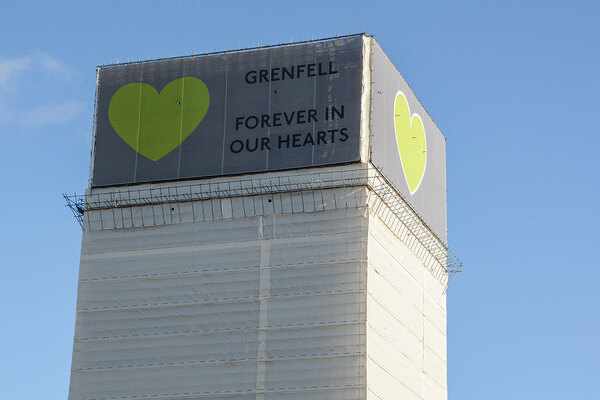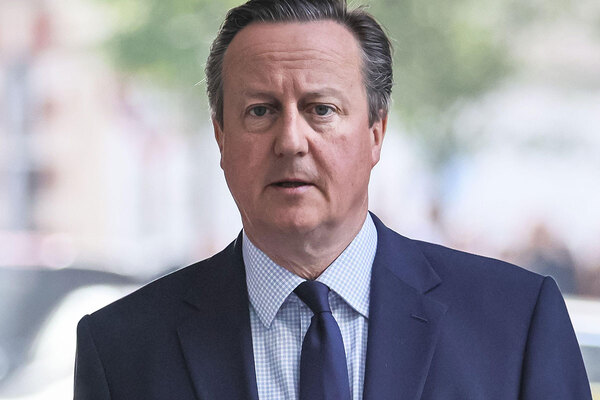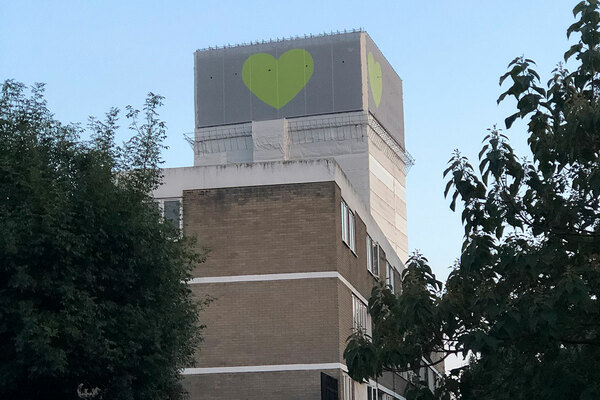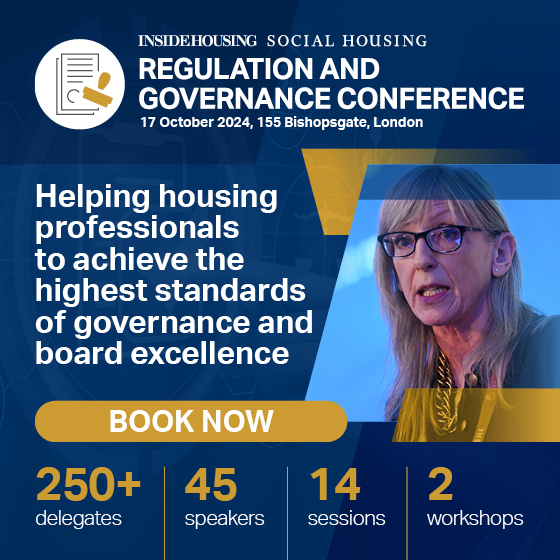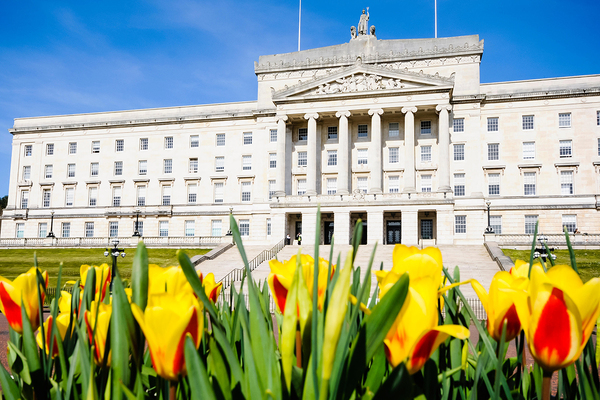You are viewing 1 of your 1 free articles
After the final Grenfell Inquiry report, we have to ask ourselves what justice looks like
Inside Housing columnist Jules Birch analyses what we have learned so far from the political response to the Grenfell Tower Inquiry
A week after the publication of the final report from the Grenfell Tower Inquiry, it’s time to focus on the responses so far and what happens next.
Prime minister Sir Keir Starmer made a dignified statement in the Commons in which he spoke directly to the Grenfell community. He said: “I want to start with an apology on behalf of the British state to each and every one of you, and indeed to all the families affected by this tragedy. It should never have happened. The country failed to discharge its most fundamental duty to protect you and your loved ones – the people we are here to serve – and I am deeply sorry.”
We’ve heard prime ministers say things like this many times over the decades, sometimes after disasters, sometimes after scandals. The difference is that Grenfell was both.
For Grenfell United, publication of the report is “a significant chapter in the journey to truth, justice and change. But justice has not been delivered. The inquiry report reveals that whenever there’s a clash between corporate interest and public safety, governments have done everything they can to avoid their responsibilities to keep people safe. The system isn’t broken, it was built this way”.
All disasters have an element of scandal about them, too. There were basic operational failures that led to them, often compounded by a cavalier attitude to health and safety, and establishment resistance to justice for the victims.
Similarly, scandals like the Post Office and infected blood were systemic failures, but also disasters that cost victims their livelihoods and their lives.
Grenfell combines the two – not an accident but an entirely preventable disaster. A scandal that does not just implicate local and central government and the entire construction industry, but also raises fundamental questions about societal attitudes towards social housing and the safety of most of the blocks of flats built during this century.
So what does justice mean in that context? Think back to earlier disasters, and the fight for justice is often a long and frustrating one for survivors, the bereaved and their families.
“[Grenfell is] a scandal that does not just implicate local and central government and the entire construction industry, but also raises fundamental questions about societal attitudes towards social housing”
We know that justice in a criminal sense will be a long process and we also know that many previous attempts to secure manslaughter convictions have failed, although the law on corporate manslaughter has been strengthened as a result.
In the case of Grenfell, police are investigating 58 suspected individuals and 19 companies. However, potential trials will not start until at least mid-2027 – 10 years after the fire.
Justice in a wider sense would mean not just those in power accepting the state’s responsibility for what the inquiry called “decades of failure by central government”, but consistent action to put things right.
In the immediate aftermath of the inquiry this may seem like a given, yet if the responses from two former prime ministers and a former housing secretary are anything to go by, this too could be an uphill struggle.
Asked a day after the report was published whether Grenfell and the Post Office and infected blood scandals meant there had been a “failure of leadership in government”, Tony Blair responded: “This is a difficult thing to say, but it’s the honest truth – however good your system is and however well-intentioned it is, and however hard people work, they’re going to make mistakes.”
Though a spokesperson said he had been quoted out of context, his comments seem to cut across the Grenfell Inquiry’s conclusion that all of the deaths were avoidable and that several of the missed opportunities to prevent it happened while he was prime minister.
A day later, David Cameron claimed: “The report is clear that fire safety and building safety regulations were explicitly excluded from the coalition government’s greatly needed ‘red tape reviews’, given the importance we placed on safety and build quality. Indeed, the coalition and post-2015 governments took steps to increase fire safety regulation.”
In fact, the inquiry found that his government’s deregulatory agenda (first one, then two, then three regulations out for every new one in) “dominated the [housing] department’s thinking to such an extent that even matters affecting the safety of life were ignored, delayed or disregarded”.
A day after that, Michael Gove told the Sunday Times that his efforts to punish cladding and insulation suppliers for the Grenfell Tower by restricting their imports “ran up against the commercial purism of Treasury Mandarin Brain”.
“Justice in a wider sense would mean not just those in power accepting the state’s responsibility for what the inquiry called ‘decades of failure by central government’, but consistent action to put things right”
While he hoped that criminal prosecutions would be brought quickly, he argued that “pursuing a few of the most guilty individuals is not enough when these companies are still making vast profits without acknowledging their full responsibility”.
He went on: “Taking the necessary action will require toughness. I worry that the new government may be dissuaded from doing everything necessary by those counselling caution. The officials with whom I worked were determined to pursue the wrongdoers and we were developing a Grenfell justice bill to give us all the tools required.
“But elsewhere in Whitehall, I know there will be voices opposed to robust action. Those saying these companies can be partners in combating climate change. Those arguing that we shouldn’t pick fights with EU neighbours when we want a closer commercial relationship. Those claiming that pursuing individual companies abroad will send a negative signal on foreign investment when the priority is growth.”
Mr Gove is putting his finger on a theme that runs right through the report: the tendency for the government to prioritise commercial interests over regulation and to see health and safety as ‘red tape’. This was evident in repeated references to the interests of ‘UK plc’ in evidence to the inquiry, which is ironic given that companies criticised so heavily in the report are headquartered in the United States, France and Ireland.
As another example, consider one of those missed opportunities: the Garnock Court fire in Irvine, Scotland in 1999.
Brian Donohoe, who was then the local Labour MP, told Kate Lamble’s excellent BBC podcast about the response from Labour colleagues in the government when he called for combustible materials to be banned and removed from the outside of residential buildings.
As the inquiry report lays out, a select committee subsequently recommended that external walls of high-rise residential buildings should either be entirely non-combustible or put through large-scale tests to prove they were safe. Scotland acted on that recommendation, but England and Wales did not.
Mr Donohoe said he was told directly by a secretary of state that they would not pay. “They said it would cost millions to put that position into a regulation that would then be enforced,” he said.
That grim calculus of costs and benefits turned out to be utterly wrong. Banning and removing combustibles might well have cost millions at the time, but it would also have saved lives. Not banning and removing them has ended up costing tens, possibly hundreds, of billions for ‘UK plc’.
And that raises the issue of justice for the hundreds of thousands of people caught up in the wider building safety scandal, which was not part of the remit for the inquiry but has grown with every month since.
Ministers have promised to accelerate the pace of remediation and clear the blockages in the system that mean work has not even started on more than half of the buildings taller than 11 metres with unsafe cladding.
However, those voices “elsewhere in Whitehall” will still be a factor, especially in a government that sees housebuilding as a major engine of growth.
Finally, the inquiry recommends “a legal requirement for the government to maintain a publicly accessible record of recommendations made by select committees, coroners and public inquiries together with a description of the steps taken in response”.
Should the government decide not to accept a recommendation – as happened after the select committee’s report in 1999 and the Lakanal House coroner’s letter in 2013 – it would have to reports its reasons and face scrutiny in parliament.
Justice means remembering, too.
Jules Birch, columnist, Inside Housing
Sign up to the Regulation and Governance Conference 2024
At a time of major regulatory change, the Regulation and Governance Conference is designed to give board members and governance and risk professionals the insight they need to plan and prioritise effectively.
Join more than 250 delegates and 45 speakers to confidently navigate the change ahead and ensure you have the right governance structures and assurance frameworks to keep tenants safe and run a viable business.


